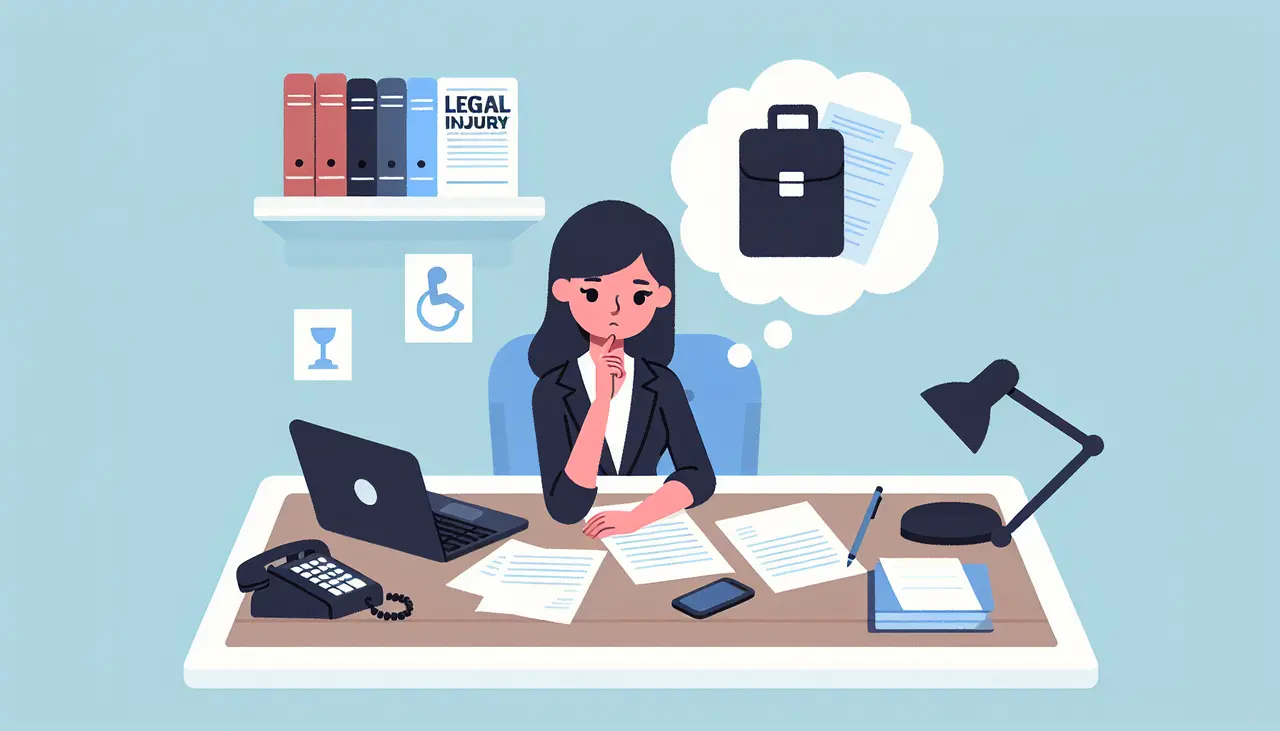When Should You Hire a Personal Injury Attorney?
Getting injured in an accident is a stressful experience. Apart from dealing with pain and recovery, you’re often left wondering about the legal and financial implications. If you’ve been hurt and are unsure if a personal injury attorney is right for you, we’ve got you covered. This FAQ will help guide you through the process.
Assess the Severity of Your Injuries
The first step in deciding whether to hire a personal injury attorney is to assess the severity of your injuries. Minor injuries might be manageable with basic insurance claims, but serious injuries, especially those with lasting effects, often require legal assistance to ensure you receive appropriate compensation.
Consider the long-term impact of your injuries. If you are facing ongoing medical treatment or have sustained permanent disabilities, it becomes critical to have professional legal guidance to address future needs and expenses. An experienced attorney can provide an accurate evaluation of your claims and help ensure that all potential compensation is covered.
When injuries lead to extensive medical bills or significant changes in your lifestyle, it is wise to consult with an attorney. They can help to estimate potential future costs, ensuring your settlement includes any present and future expenses, thus safeguarding your financial future.
Evaluate the Complexity of Your Case
Some personal injury cases are straightforward, while others involve complex legal and insurance issues. If your case involves multiple parties, unclear liability, or if the insurance company is uncooperative, an attorney can help untangle the complexity and advocate for your best interests.
In complex cases, such as those involving product liability or medical malpractice, legal expertise becomes indispensable. Multiple parties can be involved, from manufacturers to healthcare professionals. A skilled attorney can navigate these complexities, ensuring each responsible party is held accountable.
Complex cases often involve gathering substantial evidence and expert testimonies, which can be overwhelming without professional assistance. By having an attorney on your side, you’ll have access to invaluable resources, like investigative teams and legal networks, augmenting your case and increasing the likelihood of a favorable outcome.
Consider Insurance Company Responses
Insurance companies sometimes aim to minimize payouts. If you notice delays, lowball offers, or denial of your claim, it’s a sign you might need a personal injury attorney to negotiate effectively on your behalf and ensure you get the compensation you deserve.
Dealing with insurance adjusters can be daunting. They often employ tactics to confuse policyholders or downplay claims. An attorney stands as a knowledgeable intermediary, capable of cutting through the jargon, presenting a clear case that demands a fair evaluation of your claims.
When insurance companies refuse to settle claims reasonably, legal representation becomes essential. Attorneys with experience in negotiations can assertively protect your interests, presenting compelling evidence and argumentation to push for rightful compensation during mediation or litigation processes.
Identify Instances of Negligence
If your injury was due to someone else’s negligence, having legal support is crucial. An attorney can gather evidence, establish liability, and build a compelling case to hold the negligent party accountable.
Negligence cases hinge on proving duty of care, breach, causation, and damages. A personal injury attorney is adept at gathering critical evidence, whether it’s eyewitness accounts or expert opinions, to establish these elements unequivocally, ensuring your case’s strength.
In accidents caused by another’s carelessness, like distracted driving or failure to provide safe premises, attorneys offer guidance in uncovering all negligent facets. They work to highlight the defendant’s responsibility, safeguarding your right to compensation through proper legal channels.
Understand Statute of Limitations
Time is a critical factor in personal injury cases. Each state has a statute of limitations, which is a deadline for filing a lawsuit. Consulting with a personal injury attorney can ensure that you file your case within the required timeframe.
Every personal injury case has specific time constraints, after which you forfeit the right to seek legal redress. Understanding these deadlines is crucial, as failure to act promptly can result in the loss of your legal rights to compensation.
Attorneys keep track of deadlines to protect your claims’ viability, especially if you’re unaware of how these time limits fluctuate by jurisdiction or circumstance. Engaging legal counsel ensures proactive steps are taken well ahead of crucial deadlines, preserving your legal remedies.
Weigh the Benefits of Legal Expertise
Apart from managing legal complexities, a personal injury attorney can offer peace of mind by handling all aspects of your case, allowing you to focus on healing. They bring expertise and experience that often result in better compensation outcomes.
Engaging an attorney offers more than just legal representation. They act as advocates of your well-being, informing you about your rights, what compensation to expect, and guiding you through every legal step. Their involvement ensures you’re not navigating this challenging journey alone.
The advantage of having seasoned legal counsel lies in their strategic approach. Lawyers know the landscape of personal injury law, understand potential pitfalls, and are equipped to counter opposition tactics with sound strategies designed to maximize your compensation.
Conclusion: Making the Right Choice for Your Situation
In the aftermath of an injury, understanding when to reach out to a personal injury attorney can save you time, stress, and potentially bring about a better outcome to your case. By assessing the details and complexities of your situation, you can make an informed decision that best supports your recovery and financial well-being. To learn more about our services or to schedule a consultation, feel free to visit our homepage for assistance.

